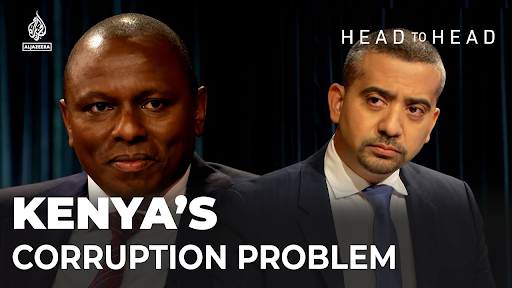The second administration of Donald Trump, coupled with Elon Musk's influence in government, is poised to bring about significant and transformative changes across various sectors. Here’s a detailed look at the 10 major changes to expect:
1. Massive Budget Cuts & Government Restructuring
Trump has prioritized reducing federal spending, with Elon Musk acting as an advisor on government efficiency.
🔹 Impact: Expect deep cuts to environmental programs, education funding, and significant reductions in the federal workforce. While these cuts aim to streamline government operations, they could lead to public sector job losses and reduced services.
🌍 Global Effect: Reduced U.S. aid to international organizations and foreign governments may shift global economic and geopolitical dynamics. Countries reliant on U.S. financial assistance might seek alternative alliances.
2. Tariffs and Economic Isolationism
Trump has reinstated tariffs on Mexico, Canada, China, and the EU, aiming to protect U.S. industries.
🔹 Impact: This could lead to higher prices for consumers and potential trade wars, affecting global markets. While the goal is to protect domestic industries, history suggests that prolonged trade disputes can slow economic growth and strain international relations.
✅ Who Benefits? Some U.S. manufacturers may gain a competitive edge, but global supply chains could be disrupted, affecting businesses and consumers worldwide.
3. End of Birthright Citizenship
The administration is pushing to revoke automatic U.S. citizenship for children of non-citizens born in the country.
🔹 Impact: This policy will likely face Supreme Court battles over its constitutionality. If enacted, it could significantly alter immigration patterns, raise legal challenges, and affect millions of people.
⚖️ Legal Implications: This move would challenge the 14th Amendment and likely lead to prolonged legal disputes. If upheld, it would set a precedent for redefining citizenship laws.
4. Reducing U.S. Role in NATO and Global Alliances
Trump has cut military aid to Ukraine and reduced U.S. contributions to NATO, arguing that allies should bear more of the financial burden.
🔹 Impact: This could weaken Western alliances and shift global power balances. While it may reduce military spending, it could also embolden adversarial nations and lead to a realignment of international security structures.
🌍 Global Consequences: Europe may increase defense spending, while adversarial nations like Russia and China could take advantage of weakened Western unity.
5. Artificial Intelligence & Automation Prioritization
Musk is advocating for AI-driven innovation in government operations, defense, and automation.
🔹 Impact: The administration is exploring AI-powered policing, automated public services, and AI military applications. While this could enhance efficiency, it also raises ethical, employment, and privacy concerns.
🚀 Who Benefits? Technology firms and AI researchers stand to gain, but job displacement could disproportionately affect low-skilled workers.
6. SpaceX and NASA Partnership Expansion
NASA’s budget is shifting toward private-sector partnerships, particularly with SpaceX.
🔹 Impact: Musk is leading efforts for Moon and Mars colonization, with increased military interest in space technology. While this could accelerate space exploration, concerns over the privatization and potential militarization of space remain.
🌌 Long-Term Effects: Space commercialization may open new economic frontiers, but it also raises questions about space law, ownership rights, and international cooperation.
7. Major Immigration Crackdowns & Border Policies
Trump is ramping up immigration enforcement with mass deportations, border wall expansion, and stricter legal immigration policies.
🔹 Impact: More military presence at the border is expected. While these policies aim to curb illegal immigration, they may lead to humanitarian concerns and strained relations with neighboring countries.
💰 Economic Impact: Reduced immigrant labor may lead to shortages in industries reliant on foreign workers, potentially raising costs for businesses and consumers.
8. Deregulation of Environmental Protections
Trump and Musk are advocating for a shift away from traditional climate change policies, favoring nuclear energy and AI-driven sustainability projects.
🔹 Impact: Increased oil drilling and fossil fuel production could enhance energy independence but may also raise environmental concerns. Musk’s push for AI-based climate solutions offers an alternative approach, though its effectiveness remains uncertain.
⚖️ Justification: Supporters argue this boosts economic growth and energy security. Critics warn of long-term environmental damage and climate instability.
9. Supreme Court and Judicial Appointments
Trump is appointing more conservative justices, shaping the judiciary for decades to come.
🔹 Impact: These appointments will influence rulings on abortion rights, gun laws, and federal regulations. A conservative-leaning Supreme Court may roll back progressive policies and redefine presidential power through legal challenges.
📜 Long-Term Legal Effects: These appointments could shape American law for generations, reinforcing conservative policies and affecting civil rights.
10. Changes in Tech and Free Speech Policies
Musk is advocating for reduced content moderation and looser regulations on social media platforms.
🔹 Impact: Reversing Section 230 protections could make platforms more liable for user content, altering how Big Tech operates. While this may promote free speech, it could also lead to an increase in misinformation and hate speech.
🌍 Global Influence: Other countries may follow suit in regulating social media differently, leading to a fragmented digital landscape.
Final Thoughts: The Long-Term Impact
While these changes align with Trump's vision of economic nationalism and deregulation, their long-term effects remain uncertain. Some policies could strengthen U.S. industries and innovation, while others risk economic instability and diplomatic tensions.
📈 How Long Will the Effects Be Felt?
Many of these policies, especially judicial appointments and space privatization, will have impacts lasting for decades. Trade wars and diplomatic shifts could take years to stabilize, while AI and tech deregulation could redefine global industries within a decade. Ultimately, the success or failure of these policies will shape the legacy of Trump’s second term and America's role in the world for years to come. 🚀🇺🇸
.jpg)
.jpg)
.jpg)
.jpg)
.jpg)
.jpg)
.jpg)
.jpg)
.jpg)
.jpg)
.jpg)
.jpg)
.jpg)
.jpg)
.jpg)
.jpg)
.jpg)
.jpg)
.jpg)
.jpg)
.jpg)
.jpg)
.jpg)







.jpg)
